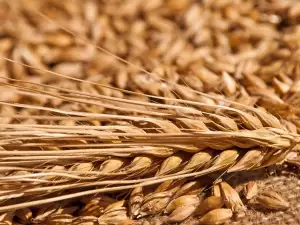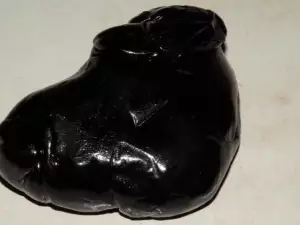Inulin is a natural polysaccharide found in the tubers of some vegetables and plants. It is found in the highest amounts in chicory, but can also be found in asparagus, onion, apple, and dandelion.
The word inulin comes from the Latin name of the elecampane (Inula helenium), in whose roots the ingredient was first discovered. Inulin is valuable for the intestinal microflora, because it supports the beneficial bacteria in it.
Benefits of inulin
By its nature, inulin is a reserve polysaccharide, which means that it represents a temporary store of carbohydrates. For this reason, it is used as a sugar substitute in the dishes for diabetics. Inulin is also used to make nutritional supplements that are taken for the purpose of appetite suppression and normalizing body weight.
However, how does this happen?
To answer this question, we need to explain that an important role in the feeling of hunger-satiety is played by blood sugar. If its level drops to a certain critical value, the feeling of hunger immediately appears, which makes us immediately start eating, because only then does the feeling of satiety appear. For people who suffer from being overweight, the feeling of satiety should occur as soon as possible after eating.
This is because, in general, the feeling of fullness occurs about 15-20 minutes after a meal - minutes in which a person can ingest large amounts of food and too many unnecessary calories. This is where inulin supplements come in handy, because if taken before a meal, they will reduce the amount of food consumed.
Inulin also has a number of other health benefits. It is resistant to the digestive process in the stomach and small intestine - it passes through the body without being digested in the upper part of the digestive tract, reaching the large intestine intact.

Because inulin is undissolved when it reaches the colon, it becomes the perfect food for good bacteria there.
All of this makes inulin an excellent prebiotic to support the production of bifidobacteria in the stomach. The unique role of inulin makes it a valuable assistant in maintaining a healthy and strong immune system.
Inulin improves lipid metabolism – phospholipids, cholesterol and triglycerides. This helps to prevent cardiovascular diseases and alleviates the effects of those that have already occurred.
Inulin activates the overall processes of the circulatory system and helps to remove heavy metals from the body faster. Inulin also accelerates the removal of plaque and unprocessed food, helps with constipation and diarrhea.
Inulin protects from the occurrence of certain oncological diseases, it has a very good hepatoprotective effect (protects the liver). It lowers blood sugar in diabetics while protecting against diabetes-related complications such as diabetic retinopathy.
Inulin supplements are recommended for arthritis, kidney stone disease, ischemic disease, heart attack, osteochondrosis, atherosclerosis and obesity. A number of studies have shown that inulin helps the body absorb calcium better, which in turn strengthens bones.
Inulin beautification
In addition to health, inulin is extremely beneficial for hair. Any woman who wants beautiful and voluminous hair can replace aggressive cosmetic products with bioproducts with inulin. These products protect the hair without damaging it, prevent it from breaking, add volume and help it to be combed more easily.
Sources of inulin

As it became clear, inulin is extremely beneficial, but if it is taken incorrectly, all its benefits can turn into serious disadvantages. Inulin in the form of a dietary supplement may not be as beneficial as inulin obtained from its natural sources. Therefore, it is best to get it from food - beets, peanuts, asparagus, chicory.
In the food industry, inulin is used to improve the taste of low-fat foods as well as low-sugar foods. It is also very often used as a substitute for sugar, fat or flour.
Inulin intake
As a food supplement, inulin is available in the form of tablets, capsules and powders. It is taken no more than three times a day - 10 tablets or capsules. For prophylactic purposes, drink 1-2 tablets daily. They are taken with water. Inulin in powder form dissolves in water, juice or yogurt, but they should always be at room temperature. The liquid with which the inulin is taken should not be cold.
In food supplements, inulin is combined with other valuable natural ingredients that enhance its action – rosehip, ginseng, celery, parsley, etc.
Damage from inulin
There is no evidence of serious negative effects on the body when taking inulin, but it must be taken properly in the form of a dietary supplement. However, if you decide to take it, it is best to consult a doctor, because allergic reactions may occur.
It is recommended that a specialist determine the optimal dose for intake in order to avoid an unwanted side effect. Inulin is not recommended for children under 12 years of age and pregnant women must consult a specialist before starting to drink such a nutritional supplement.
















Comments